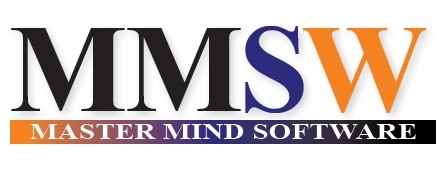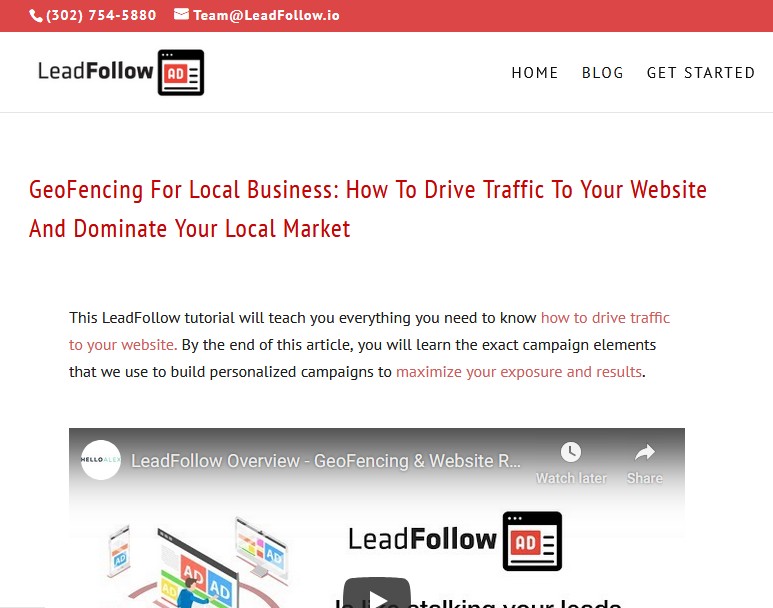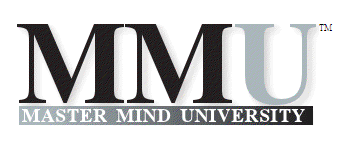
Lead Follow Information from the Field of Master Mind Software (MMSW)
Shared from the desk of: Joseph Mercado
Content Contributor: Benjamin Bressington
To: Entrepreneur
Blog Post #780
Re: GeoFencing
Date and Time: Thursday, July 25, 2019 at 3:24 p.m.
Dear Entrepreneur,
First, we’ll dive into generating leads using what we call location and behavior intelligence.
Or some people refer to this as “How you can hijack your competitors leads and clients without them even knowing,” and “How you can build brand dominance before your competition even wakes up to a lead opportunity.”
What we call this is the “Magic of how you can generate custom audiences that display a higher intent to buy but without the high PPC costs.” It’s so exciting, it’s like shooting a fish in a barrel.
Our LeadFollow platform offers massive opportunity and possibility. And we offer this technology to over 40 countries in 13 languages.
First things first!
Did you know that the average person in the U.S. does four searches per day? Each search is less than 20 seconds? That’s right! Four searches.
So all these time you’re doing SEO and optimizing your website, which is awesome, but only capitalizing on the opportunity for less than 2 minutes per day.
We found that as of 2018, the average person spends 10 hours and 39 minutes in front of screens. But yet, you’re SEO is going to drive traffic to your website for two minutes of this 10 or 11-hour activity.
The real big question is: where are people spending their time?
Here’s the reality.
You’re missing about 98% of your user base all the time if you’re only doing SEO and Paid Traffic.
That’s because people spend their time on tablets, forums, on research, and on content consumption – videos, social media, articles, blog posts, you name it!
People are out there consuming content, and it’s your job to put your ads in front of them no matter where they are on the internet. And that’s where we come into the picture!
- LeadFollow is like stalking your leads online. Wherever your audience goes online, your Ads will be there following them around.
- LeadFollow allows you to engage with your leads. It happens at the start of their research process and influences their decision making. They may not even be aware that you did it.
- LeadFollow uses the latest in online and offline behavioral data science.
We use recency, frequency, and duration research.
These three are the latest things in behavioral sciences that we apply in all of our campaigns.
LeadFollow:
- Home
- Blog
- Get Started
- Schedule Call
- Contact Us
- Login
GeoFencing For Local Business: How To Drive Traffic To Your Website And Dominate Your Local Market
This LeadFollow tutorial will teach you everything you need to know how to drive traffic to your website. By the end of this article, you will learn the exact campaign elements that we use to build personalized campaigns to maximize your exposure and results.
First, we’ll dive into generating leads using what we call location and behavior intelligence. Or some people refer to this as “How you can hijack your competitors leads and clients without them even knowing,” and “How you can build brand dominance before your competition even wakes up to a lead opportunity.”
What we call this is the “Magic of how you can generate custom audiences that display a higher intent to buy but without the high PPC costs.” It’s so exciting, it’s like shooting a fish in a barrel.
Our LeadFollow platform offers massive opportunity and possibility. And we offer this technology to over 40 countries in 13 languages.
First things first!
Did you know that the average person in the U.S. does four searches per day? Each search is less than 20 seconds? That’s right! Four searches.
So all these time you’re doing SEO and optimizing your website, which is awesome, but only capitalizing on the opportunity for less than 2 minutes per day.
We found that as of 2018, the average person spends 10 hours and 39 minutes in front of screens. But yet, you’re SEO is going to drive traffic to your website for two minutes of this 10 or 11-hour activity.
The real big question is: where are people spending their time?
Here’s the reality.
You’re missing about 98% of your user base all the time if you’re only doing SEO and Paid Traffic.
That’s because people spend their time on tablets, forums, on research, and on content consumption – videos, social media, articles, blog posts, you name it!
People are out there consuming content, and it’s your job to put your ads in front of them no matter where they are on the internet. And that’s where we come into the picture!
drive traffic to website
LeadFollow is like stalking your leads online. Wherever your audience goes online, your Ads will be there following them around.
LeadFollow allows you to engage with your leads. It happens at the start of their research process and influences their decision making. They may not even be aware that you did it.
LeadFollow uses the latest in online and offline behavioral data science. We use recency, frequency, and duration research. These three are the latest things in behavioral sciences that we apply in all of our campaigns.
LeadFollow is a one platform leverage. We use the latest in search and location intelligent targeting to engage your users, leads, and clients no matter where they are or whatever part of the buying cycle they are in.
We can do all these in any country, on any device, anywhere in the world! And that’s just the tip of the iceberg.
Breakdown of the product stack
Our product stack is broken down into three simple elements:
Website Activity. This refers to the people visiting your website.
Contextual Search Activity. These are the people who are already consuming content and reading and searching for things online at different stages of the buying cycle.
Geolocation Activity. This uses people’s specific location to anchor in on their offline activities.
These elements make our product stack super unique and very powerful.
Website Activity
When it comes to website activity, we’re talking about your site visitors, and what we call site visitor retargeting. This element involves putting your Ad in front of people who have left your website.
Let’s face it. About 98% will leave the traffic to website. And there’s only about 17% of people who will come back organically.
Our platform is 70% more likely to convert people if they’ve seen your retargeting Ads, and about 27% more likely to come back to your website because they’ve seen your Ads. Plus, we recommend that they see your Ads for at least 30 days.
I’m sure you’ve experienced this already. So let’s say you go to Amazon.com, and you’re looking at those red shoes. But you didn’t buy them at first.
So you move on to Facebook, and you’re on your car forums, and then you might be on Forbes, and you see the Ads for those red shoes everywhere.
That is what retargeting is all about. And that’s what we can make possible! We want to bring back as many of your clients to your website as possible.
So, what’s the plan?
When people come to visit your website, what we want to do is display your specific Ads to them once they’ve left.
Contextual Search.
Now, let’s talk about the second element. This consists of two things. The first is what we call search retargeting. Under this category are the people who search for products or services you offer.
This is where we can use artificial intelligence and where we process over 3 terabytes of data a day. That’s a lot of unstructured data that we process, and we analyze to work out who is searching for your products and services.
The next step involves showing your product, your Ads, to these people because it’s contextually relevant to them in their search behavior – their search behavior for the last 30 days to 3 months.
Search retargeting is very powerful. People go to websites all the time. For example, they use Pinterest and many other sites to search for suggestions and ideas on how to design. What you can do is have your Ads show.
The other is what we call contextual display. We display your Ads to people who have read blogs, content, or watch videos related to your products and services. We also call this the broad search that was used in Pay Per Click or PPC.
Keyword contextual is when we’re on those types of sites. For example, a person is using a certain keyword. What we’ll do is analyze the data on what they’re searching and display your Ads because its relevant to the keywords on those pages.
Here’s an example.
If I was searching for great lifted car parts for my Jeep, and want to turn it from a standard Jeep into one of those lifted ones, I’m going to look for reviews and suggestions on what products. Now, imagine if your Ads were displayed while I’m looking on forums.
Imagine if I’m looking for great ways to lose weight, and your product Ads start showing up because it’s now keyword contextually relevant based on the searches I’m doing online.
The third kind is what we call category contextual. This is where we can take people’s searches and use their search patterns, and start to put your Ads in front of people on top of the funnel.
So this happens right at the beginning of their search. They may not even be aware that they’re searching for your product yet, but they’re in the contextual category of searching for your brand or product.
So what you’re doing is putting your brand in front of these people before anyone else is starting to build brand dominance because of their online activity.
Geo-Location.
Now let’s talk about geo-location. This is where LeadFollow platform gets a life of its own because it’s an extremely powerful way to transform your marketing campaigns.
We have this feature that is unique to us called addressable retargeting. This is where you can put your Ads in front of people because of their mailing address.
So if you have clients’ mailing addresses, we can take that address and put geo-fence around it. This means we can target people at a specific address. And we can display your Ads to everybody who lives in that household or that building.
We also have geo-targeting. This is where we can put your Ads in front of people because of where they interact or what they’re doing offline.
Some things worth noting…
With geofencing, remember that your clients are already doing things offline that you can use to target them online. This is new for the marketing world, and a lot of people don’t do this well – most advertisers only use people’s online activities.
You’ll miss a lot of buying intent and framing if you only read into online activities without analyzing offline activities. Imagine if you could use your competitor’s locations to buy products to this very day that relate to your product, and you could display your ads in front of them.
How much difference would that make in your business?
Here’s another example. Let’s say you sell golf products. Imagine if you can target people who walk into certain golf courses, soccer, or hockey fields. So if I walked into a sports field in the country and I was able to get targeted with your Ads because of my intent of action I’m taking offline.
It could be where they’re driving past certain retail locations because of major intersections. It could be because of sporting events or conferences.
But the big questions you need to ask yourself are: how do your clients spend their day? What do they do on a regular basis? Where do they go for coffee? What fine dining restaurants do they go to? Where do they buy fancy jewelry? Where do they travel?
These are really great indicators that allow you to use that data in your marketing to improve your marketing efforts.
A brief definition of Geofencing
Geofencing is a technology that allows us to use a person’s exact geolocation to trigger specific advertisements, which are either banner Ads or video Ads. These Ads can be customized to be displayed based on their recency.
Are the users in that location right now? Or did they leave that location five minutes ago? Have they not been back to that location for like 30 days?
With geofencing, all these questions will be answered. So this is an awesome thing to have in your marketing tactics.
Geofencing is different from traditional Pay Per Click advertising on Facebook and Google because it requires physical presence.
This is where we get to merge what we call the online intent, the online action, with the offline action, and display more targeted advertising. It doesn’t require people to install absolutely anything.
Let me give you a quick example of how this works. Let’s use a Cross Fit fitness studio that is looking for new members.
What we’re going to do is to display a coupon to everyone who enters gyms within a two-mile radius, and other sporting events that would be relevant because we’re using the intent of people who are looking to lose weight.
So this includes people who are already attending a Cross Fit, a gym, or they’re doing yoga or Pilates, or any other physical activity, that would show us intent.
We can also use people who are walking into health food stores, juice bars, yoga shops. You name it, we can factor that into our Geofencing.
What geofencing allows us to do is actually put a digital fence around a specific building. For example, there’s a fitness center down the road from me. I can put a geofence around a specific building, and anyone who enters that building will then start to see your Ads because of their offline activity.
What’s really cool about this is our system has this exclusive technology that allows us to create conversion zones. This means we could actually put a conversion zone around our client’s location.
What’s mind-blowing is that we can track people’s activity based on whether they see the Ad and then walk into our client’s location. They no longer even have to click on the Ads for us to influence their decision-making process.
And because we can do that, we can provide you a detailed report on everyone who has viewed your Ads online, and then walked into your store, and may not have even clicked your Ads, because we’re tracking the detail so granularly and that’s what they call unstructured data.
That is why we have conversion zones.
Let’s say you have retail locations. We can turn your current retail locations into conversion zones and connect this to track. Everything gets done on our side of the LeadFollow platform.
How does this work?
All of these takes place virtually using our proprietary technology on the LeadFollow platform. First, we will create a virtual geofence, which is traced around any location, and we can do this in any location – It can be public parks, sporting fields, schools, specific businesses, or competitor stores.
As long as their location exists on a map and either 100 meters or larger, we can extract data from that location.
The next step is creating a conversion zone. We will do the exact same thing around your specific locations that you want to track as conversion. This will allow us to track data of who’s seeing your Ads and then walked into your conversion zone.
Another strategy that we use is for our clients who do direct mail. It is called LeadFollow Addressable. This is what our system has some proprietary technology about, and we actually get to upload your mailing addresses that you’re using for your direct mail campaigns into our system.
Our system will automatically overlay the GIS property boundary lines for that property and automatically create a geofence around that property address. So you’ve sent a postcard to somebody.
Furthermore, they could be seeing your Ads that relate or refer to your postcard for the next 30 days. And we’re showing your Ads to everyone in that household.
In return, you can now engage everybody in the household even if your direct mail flyer or postcard didn’t show up for whatever reason. And even if they didn’t read it, or did read it and threw it in the trash, you can actually have your Ads still shown to those people for the next 30 days.
We’ve seen this strategy increase the ROI from direct mail campaigns significantly.
LeadFollow reporting system
In LeadFollow, we give you real-time analytics. We give you very detailed reporting about what’s going on with your Ad campaigns, who’s seeing them, how many people are seeing then, and where your Ads are placed.
We can tell you in granular detail everything about your campaign. We can talk about geofencing in conversion zones, and track the difference between natural converters and campaign converters.
Let’s take a step back.
Natural converters are the people who walked into your store regardless of running a campaign or not. We can actually track this data and compare it to the difference in who’s seeing your campaign because of your campaign.
By this, we can show you what we call a conversion lift score. This refers to the increase in the percentage of driving traffic to your website because of the campaign. This is all possible because our team can stack, use, and optimize all the elements of the LeadFollow technology in building your campaign.
In other words, we can leverage campaigns that include your website activity, to contextual search, and geolocation, and we can merge them all together to create a custom campaign that’s gonna help you achieve your goals.
How do we reach your clients?
First, let me ask you these:
Have you ever checked the weather on a mobile device? Have you asked Alexa for the weather information? Have you asked Siri for the Alexa information?
Have you ever looked up movie times? Have you ever searched for things to do? Or have you ever searched for something to eat near you?
That means on your mobile devices, desktop computers, and tablets.
If you have enabled location services, which 90% of people do, or if you have used Google Maps, Waze, Apple Maps, or any other type of map navigational tool or application, you got location services that are giving data available to us to target customers.
Social media location tagging also gives us the physical location of the user. This means we can target them with your advertisements.
Searching for an ATM or ATM near me, ordering food online, or using apps like Uber and Lyft, also allows for location services. The location cookies are then made available and can be targeted with advertisements.
We can accurately pinpoint these people with your Ads because of their online and offline activity. The opportunity for this is massive! The bottom line is: we reach your clients where they are.
So when your clients are searching movie times or reading car forums, we can display your Ads. If they are on an app or a game, we can serve them with Ads because we publish to over 600,000 apps. We can put your Ads to your clients no matter where they are online.
How do I use LeadFollow technology?
To give you some ideas on what you can do, and how you can use LeadFollow, here’s a breakdown of some campaign elements we do and how to implement them in your campaign.
- LeadFollow will analyze your current location. We will run targeted Ads to people who are currently visiting your location or have left your current location.
- LeadFollow can also do the four-block area which refers to the people in the vicinity of your location.
- LeadFollow will leverage your competitors’ locations, and target Ads to people who are walking into your competitors’ location.
- LeadFollow will discuss things such as where your clients hang out. This is important because if we can define the way your clients hanging out or the activities they’re doing, we can then customize the campaign to have greater audience building capabilities.
- LeadFollow can use your client list data to reactive them, re-onboard them, and present them with new offers.
- LeadFollow can do a contextual search, as well as the category display networks. This application is designed for somebody who has a physical retail store.
- LeadFollow will put geolocation around your current business location, and target Ads to people who are walking in. Remember that not all the people who walked in a store, say a furniture shop, will purchase a product. But, what if we present them with a coupon or a special offer once they walk in? It will increase the likelihood of their purchase activity.
- LeadFollow can look at the data of the people who have left your store. And then present coupons to somebody who left your store five minutes ago left seven days ago, or who haven’t come back to your store for 30 days.
- LeadFollow present massive opportunity for businesses to engage with people.
- LeadFollow has hijacking functionality that allows us to hijack traffic based on your location. Right now, your competitors are advertising. You can leverage and hijack their current traffic. We will identify all of your competitors in your area, say 10-mile radius or bigger.
- LeadFollow will identify all of your competitor’s locations and put geo-fences around all those locations. So when somebody walks into your competitor’s locations they would be presented with an offer or opportunity to contact you, call you, or even just be aware that you exist.
- LeadFollow can present people with a different opportunity to engage with you, different awareness about your brand, products, the services, the features.
- LeadFollow can analyze where your clients are hanging out. We might look at high-end restaurants, jewelry stores, or fashion stores. So we could put geofences around stores like Neiman Marcus, Gucci, or Louis Vuitton.
- LeadFollow will look into the major hotspots or intersections that trigger or promote activity for both our retail clients or doctor clients. So if your store is near a major intersection, there could be 20,000 people in the vicinity or driving past it every day. We can geofence that intersection and target everybody with your advertisements. And since they are already there, all that is left is to make the right offer at the right time.
- LeadFollow can use the information to target locations such as conferences, places of worship, fabrication or construction sites, sporting events, concerts, or physical stores related to your online business. We can capture people who are walking into these locations. So it doesn’t matter if you have no physical store. And when people walk into these locations, they would see your Ads and offerings.
- LeadFollow can also factor in the recency of the campaign. So for example, has the prospect been into a store within the last 30 days? This allows us to craft and creates campaigns for our clients without physical stores. For this type of clients, we can target nationally and give exposure to tens of thousands of people. We’ve done this for people who sell CBD oils and other supplements.
- LeadFollow can target internationally and deliver awareness and attention to customers in Canada, Mexico, or Germany. And we can do it in multiple languages.
As you can see, LeadFollow is a powerful tool for various businesses.
With our platform, you can make a massive difference to the effectiveness of your campaigns. We’ll provide you a competitive advantage by giving you a head start on this technology.
Everything sounds really exciting, right?
So, what are the next steps?
It’s very simple.
Contact your LeadFollow representative. You can find the contact information to your representative below this article.
Next, we will discuss your campaign goals and your budgets for our team to assemble the right campaign for you. We already have specific campaign templates set up for many industries so you can leverage one of those, which saves you some money. You can also choose to customize the entire campaign.
The last step involves activating your campaign. We’ll define it, show you how it’s going to achieve your goals, and then go through the process of activating your campaign. We have campaign activated in as little as 24 hours.
So reach out to us! We look forward to talking to you soon. And seeing how you’ve applied LeadFollow to your business.
If you would like a complementary strategy, call with one of our LeadFollow Advisors. Please email Team@LeadFollow.io, Call or Text 888-521-7480 or Schedule a time here.
Content Resource: LeadFollow.is

![]()

Please send us an email message below and we will serve you momentarily.



